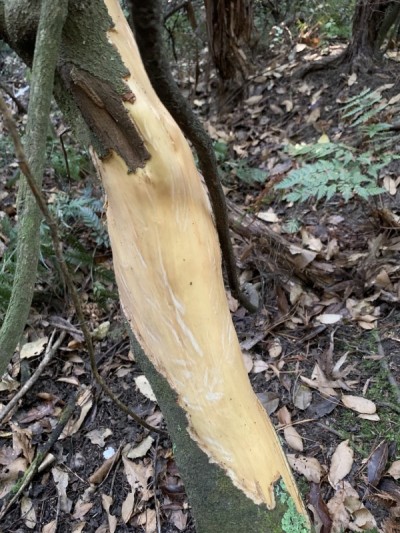Forest Restoration Podcast – Biodiversity, Enrichment Planting, and the Social vs. Science Issues of Feral Herbivores.

In these Covid-19 affected times, several projects I am working on have opted to have me prepare podcasts or recorded slideshows to help share advice and knowledge to landowners. A really positive side of this is that the materials prepared can be benefited by a wider audience.
Earlier this month, I recorded the podcast linked below.
In this podcast, I talk a little about the forest restoration work I am doing nationally (including as the Te Uru Rākau/NZ School of Forestry Restoration Ambassador), specifically including a large-scale forest restoration trial funded through the Kaikoura Post-Quake Farming project, aiming at better understanding the management of reintroducing old-growth canopy species (enrichment planting; see our paper) into secondary, exotic and degraded old-growth forest ecosystems.
I discuss the term ‘Biodiversity’, and how it is a useful term in the context of forest restoration planning at genetic, species, and ecosystem levels.
I then talk in some detail (free advice on offer here!!) about what to think about if retiring land for reversion to native forest.
Following this, I touch on what the ETS can offer landowners in terms of income streams and what to do to initially scope this opportunity out at a property level.
I then go on to discuss what I see as issues around feral herbivores in NZ and how these relate to native forest health. Here I propose that the problem, as it currently stands for NZ, is as much a social as a science issue. By this I mean we need to be recognising how important feral herbivores are in several sectors of society (e.g., hunting), and then rationalise this against what we need to achieve to have forests that have regenerating understories containing a natural diversity (i.e., flora over a range of palatability) for biodiversity, biomass and also just to acheive persistence of our native forest ecosystems. My point essentially is that, we need to address the social aspect of this issue – if we single-in on science aspects alone, we will as a nation run into continued resistance to finding solutions. Hunting is an important recreational activity and we need to understand what a reasonable balance point is.
The first part of the podcast features Rebecca Kelly, who is a progressive north Canterbury Farmer, and also is a host of one of our enrichment planting trial sites. Rebecca discusses aspects of her farming operation from 0 to 11:55 mins, at which point I then discuss the above topics. Total listening time is 30 mins.
Here is the link to listen to the podcast, I hope you enjoy the clip: https://factum-agri.buzzsprout.com/956197/3391618-post-quake-farming-series-ep3